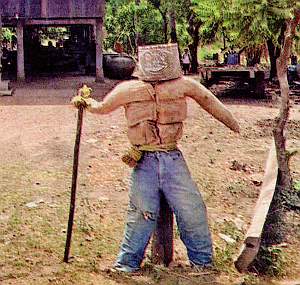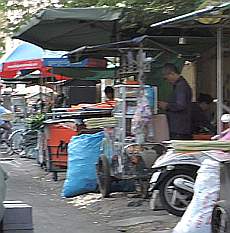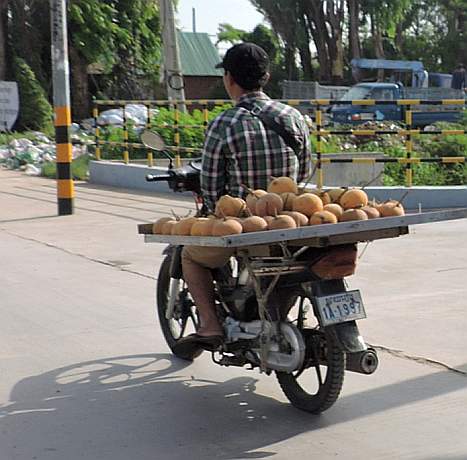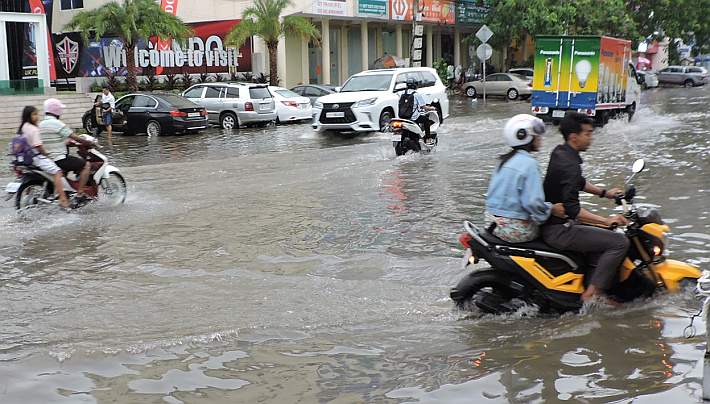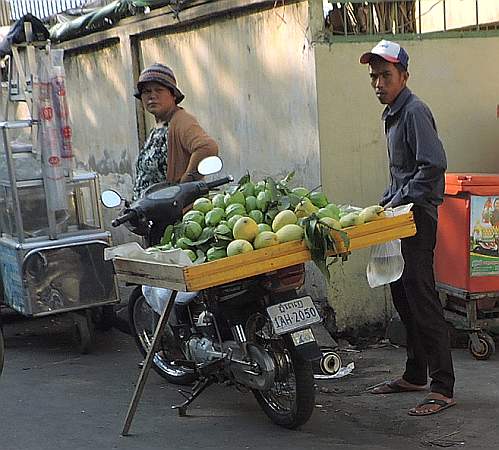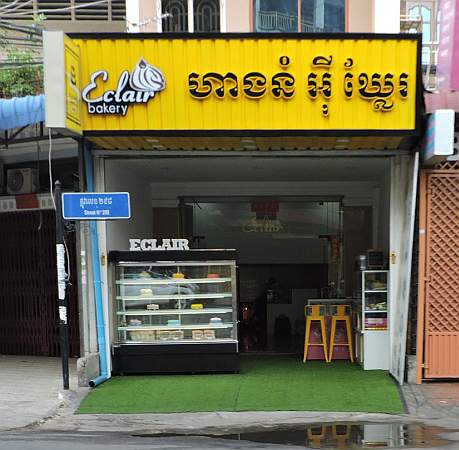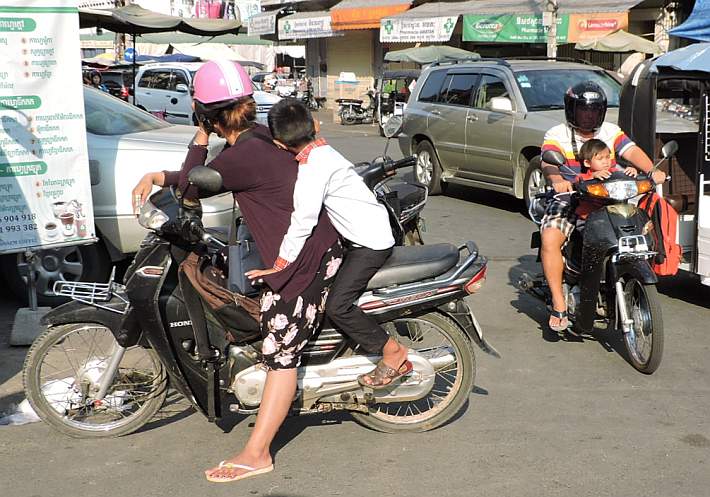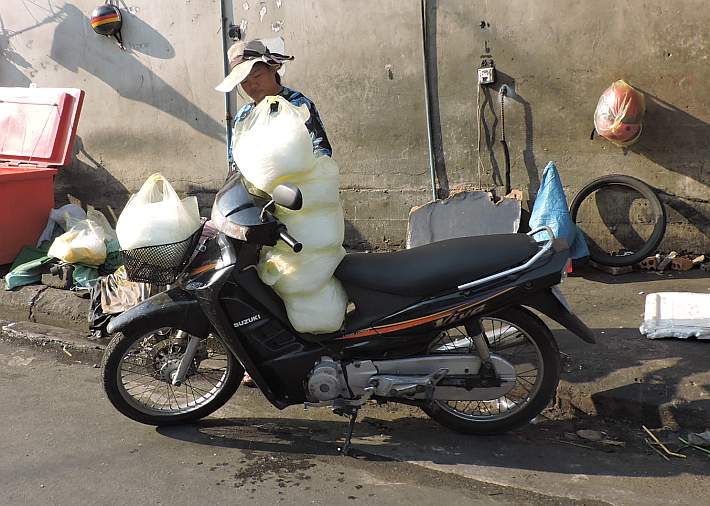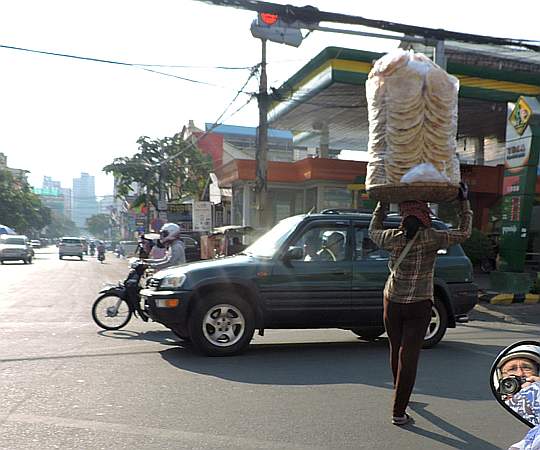Asian people generally don’t bake. Most of their land is in rice and they don’t have wheat. As times and tastes change, though, many bakeries like this one are springing up in Phnom Penh. I come from a family where Mom baked a pie or cake or cookies almost every day but that’s not what you find here. Go into one of these bakeries looking for doughnuts or rolls or kuchen (or even an eclair, as the name of this place suggests) and you will be disappointed. These places are usually an initiative of a stay-at-home-mother who wants to start a small business like everyone else. She bakes a few cakes, seen in the display case, and creates other cakes to order, but it’s not a business driven by volume—and the cakes are certainly not like mother used to make!
